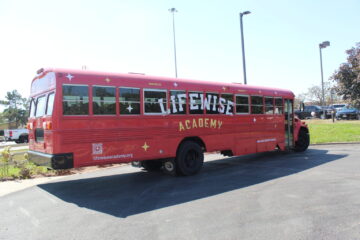Springfield’s only rabbi regrets JTA interview denigrating Haitians
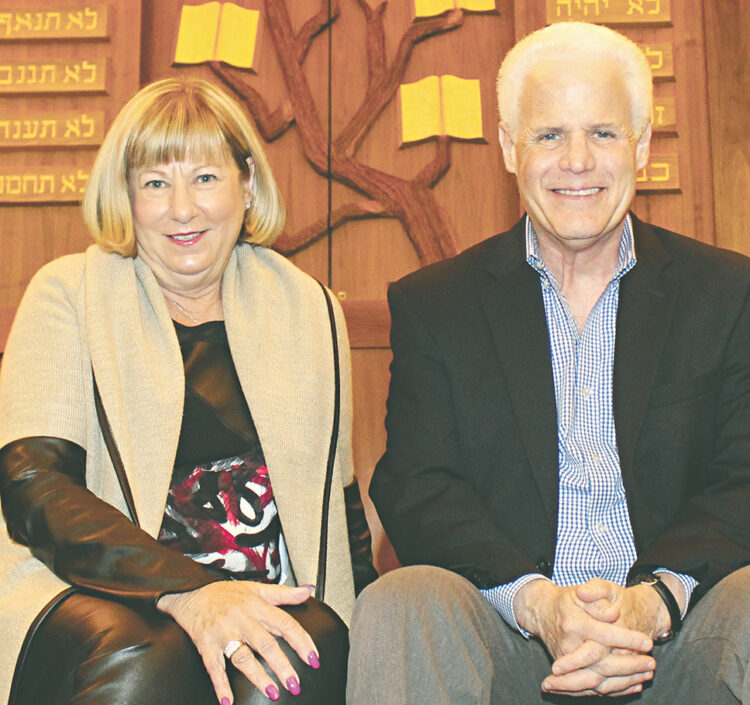
Though he insists he was taken out of context, interview was ‘politicized.’
By Marshall Weiss, The Dayton Jewish Observer
A day after JTA distributed the news story, The only rabbi in Springfield, Ohio, says local Haitian migrants lack ‘Western civilized values,’ the rabbi, Cary Kozberg, issued a statement that he takes “responsibility for the pain I have caused and deeply regret it.”
In the Thursday, Sept. 19 article by Andrew Lapin, Kozberg, the part-time rabbi for Springfield’s Temple Sholom, was quoted as saying about Springfield’s Haitian community:
• “This is about a culture clash. We, as the citizens of Springfield, are being disenfranchised.” When asked to clarify which communities he believed have been disenfranchised, Kozberg said, “White, Anglo-Saxon Protestant” people.
• “Haiti is not known for its, shall we say, adherence to Western civilized values.”
• “When Jews came here, they wanted to assimilate, they wanted to be good Americans. In fact, they jettisoned a lot of their own Jewish background to become good Americans. That’s not necessarily the case with these folks, and that’s where a lot of the frustration is.”
• “Tzedakah (giving) is about concentric circles. If other people are helping the Haitians, God bless. I’m not saying they shouldn’t be helped. But I think there needs to be a focus on the folks that have been disenfranchised by what’s going on.”
• He claimed some of his congregants had been forced to move from their apartments because “the Haitians were trashing the complex.”
• “Another congregant was injured in a car accident because Haitians don’t drive the way we drive here in this country.”
In Kozberg’s statement of apology, which he read to The Observer via phone the afternoon of Friday, Sept. 20, he said, “As a part-time rabbi living an hour from Springfield (in Columbus), I was not well-informed on the situation with the Haitian immigrants. Since the interview, I have learned much more about the immigration situation in Springfield. My opinions have definitely been modified.”
Also on the phone with Kozberg at Temple Sholom in Springfield was the congregation’s president, Laurie Leventhal, who issued her own statement on behalf of Temple Sholom.
“Our members embrace the Jewish teachings of welcoming the stranger and we practice social justice or tikun olam,” her statement read. “We were quite saddened to read Rabbi Kozberg’s interview in the JTA. He was not speaking for the congregation when he was interviewed. He tried to clarify certain points, and we appreciate that he has done more research since the interview. He has come to a better understanding of the situation here in Springfield.”
On the phone interview, Leventhal said that Temple Sholom supports its rabbi. “We stand with him as a person. He represents the Jewish community here, but not with that article. We are here because of him, because of our rabbi. He’s made us stronger.”
‘People make mistakes’
Kozberg told The Observer during the interview that it wasn’t his intention to make racist statements. “I misspoke,” he said. “I don’t believe all Haitians are bad. Most people don’t know me as a racist. People make mistakes. And I made a mistake. I should have been more clear in terms of how I expressed my understanding of the situation.”
The rabbi added he did not expect the JTA interview to be “so politicized.”
“I should have shut the interview down,” he said. “That was another mistake.”
When asked how JTA’s Andrew Lapin politicized the interview, Kozberg said the reporter wanted a specific response about Republican presidential candidate/former President Donald Trump’s comments.
“He obviously did research about my political views and things I had written, and injected those into the interview,” Kozberg said. “I did not want to go there. But unfortunately, I was too wrapped up in what was being said and trying to clarify that I obviously misspoke, and he ran with it the way he needed to.”
Lapin is JTA’s senior reporter. He told The Observer that after several days of seeing Springfield in the headlines “for Trump and Vance spreading the lies about Haitian migrants, it was clear that a Jewish angle was starting to emerge.”
National Jewish groups began to speak out on behalf of the Haitian community in Springfield, specifically citing Jewish texts and the history of American attitudes toward Jews, Lapin said.
“There are many Jewish leaders who feel there was a parallel in how Trump and Vance were talking about the Haitians in Springfield,” Lapin said. “This story really just started with my editor and I saying, ‘I wonder what the Jews who are in Springfield — who are the most proximate to the community everybody is talking about — are thinking about and responding to these challenges?'”
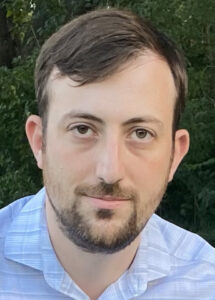
Lapin said the obvious person to interview was Kozberg because he is the only rabbi serving the only Jewish congregation in Springfield. When he reached out to Kozberg, Lapin said, the rabbi agreed to be interviewed.
“He understood that we were on the record, and he understood very well — because we talked about it during our interview — that Trump and Vance were very much a part of this story.”
Lapin added that Kozberg expressed a strong interest in talking to him about how he viewed the presence of the Haitian community in Springfield.
Kozberg told The Observer he could understand why people who read his JTA interview would think what he said was racist. He also confirmed that he was not misquoted.
But the rabbi insisted his words were taken out of context.
“He has been a very open Trump supporter,” Lapin said of Kozberg. “And so that seemed relevant to talk about. And so, yes, this was a political story, but I do not believe that I politicized it. As a journalist, it was my job to inquire about the political elements of this very political story.”
‘Are we going to ruin a person’s life because of this? No.’
Leventhal, the congregation’s president, said she doesn’t agree with what Kozberg said in the JTA article.
“I live here,” she said. “He didn’t understand that, really about the Haitian community. If you don’t live here, and you’re only coming in for an hour to do services, and you’re doing a class on Zoom, maybe he should have been a little bit more aware of it before he spoke. Mistakes happen. People make mistakes. Are we going to ruin a person’s life because of this? No.”
Because of incidents and the legitimate, continuing threat of hate groups doxing Springfield residents via social media, The Observer agreed to interview members of Temple Sholom for this story without using their names.
Doxing is to publicly publish private information about someone, especially as a punishment or revenge.
All four congregants The Observer interviewed agreed they had never heard the rabbi say anything racist or write anything racist in his role as the congregation’s rabbi.
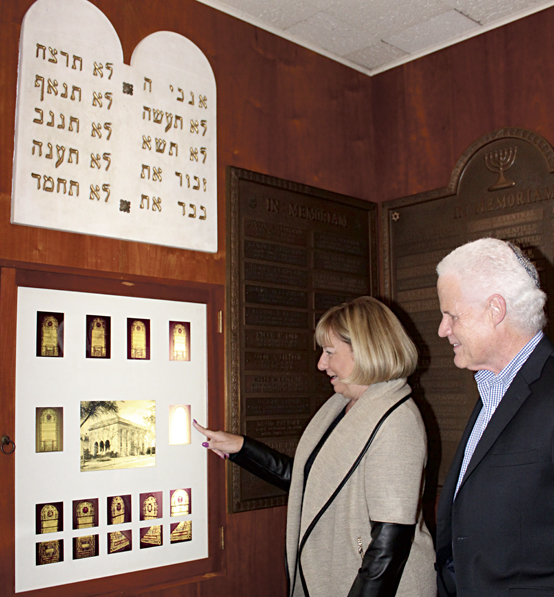
They also agreed that the rabbi always had guardrails for his role within the congregation against talking or writing about politics.
They knew that beyond the congregation, the rabbi had expressed his staunch support online for current Republican policies and that he supports Donald Trump for president.
And although Temple Sholom identifies as a Reform Jewish congregation and is a founding member of the Union for Reform Judaism, congregants are aware of Kozberg’s disdain for the Reform movement.
“A few years ago, it became apparent that Reform Judaism — through the efforts of its rabbinic and lay leaders — was moving away from these core Jewish beliefs,” Kozberg wrote two years ago in his White Rose Magazine essay, The Reform Movement Left Me. “Reform Judaism is embracing the values and teachings of political progressivism, while moving away from Jewish values and teachings derived from Jewish texts.”
Congregants on the apology
Of the Temple Sholom members The Observer interviewed for this story, two believed Kozberg’s apology is genuine. The other two hoped it is.
“It’s kind of a hard pill to swallow, because while I’m a firm believer in restorative justice, I also think that there are severe repercussions that can happen to our congregants,” one member said.
“No matter what we say in the congregation, we may forgive, and that’s an especially wonderful thing, especially in the season of teshuva (return), but we need to remember that somebody from the outside is going to look at that and think, this is what Jews think. And whether that’s right or wrong — and I believe it’s wrong — they’re going to assume we all hold that view and it’s going to make us a target.”
To this Temple Sholom member, Kozberg’s words in the JTA article were racist. “To call another group of people uncivilized and unassimilated is incredibly racist. It’s something that was used to describe Jews at one time and it’s just uncalled for and should not be used.”
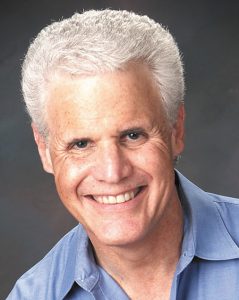
Another congregant was angry at the rabbi after reading the article. “The Haitian community is such a vulnerable community right now. And their vulnerability makes us all vulnerable because the attention on the Haitians has brought in Blood Tribe members. We are a nation of immigrants. And Springfield is just so emblematic of our larger nation. The other part that gets me is that I’m not indigenous to the Americas. So much of my own personal history is tied up with immigration. If my great-grandmother didn’t immigrate, she would have died with her brother in Auschwitz.
“And I don’t personally feel disenfranchised. I have Haitian neighbors. They’ve been wonderful. I don’t feel the disenfranchisement the rabbi says I’m feeling. He can absolutely express that he has heard from his congregants that one has had to move, that another got into an accident, but to say that ‘we’ experienced this, and my congregants as a whole experience this is a gross overstep.”
This congregant was glad to hear that the rabbi “hopefully genuinely feels like he made a mistake for the words that he says.” How much of that is heartfelt, that person added, remains to be seen. “I hope it’s a genuine sentiment from him and not something just to try and kind of pray it away.”
‘A lifetime view of Rabbi Kozberg’
A third congregant said several Temple Sholom members have had a relationship with Kozberg since 1977.
“We were his first congregation. And then, luckily, he came back to be our part-time rabbi, which has kept our congregation going.”
This congregant also viewed what Kozberg said in the JTA piece as racist.
“Many of us were horrified with the interview. But we have a lifetime view of Rabbi Kozberg: what he’s done, how he handles himself in the community. I’m not a believer in throwing Rabbi Kozberg under the bus for one interview. I’m not happy about it, but the survival of our temple is critical, and Rabbi Kozberg plays a critical role in that.”
A fourth congregant emphasized that Temple Sholom doesn’t do litmus tests on peoples’ politics. “But the problem here is that the mistake that I think Cary made and I think that you’re trying to do, you’re still trying to couple two things that are separate. Somebody talking to Cary Kozberg in Columbus in his car about political issues is not the same as Cary Kozberg representing the Springfield congregation.”
This congregant told The Observer that “all of us felt deeply disappointed and hurt by some of the things that we read in that article. Absolutely disappointed. Hurt. Shocked. And I will tell you that our rabbi also feels deeply disappointed and hurt by things that were in that article: things he said that he didn’t think before he said them. He didn’t do the research before he said them. He has owned up to that. He made a mistake, and we were really disappointed that his mistake pulled us into something that we didn’t want to be in on.
“My rabbi is just shaken to the core with this mistake he’s done. And we are not giving him a pass. He has asked lots of questions and learned lots of stuff about what’s going on in Springfield, and he has changed his views. And that is how human beings grow. And that is what we are about. And I hope that you will not go on a witch-hunt and take a situation in a city that is so hurting and make it worse.”
‘We are small, but we are diverse.’
Another aspect of Kozberg’s rabbinate this congregant noted is that he has made the temple welcoming to everyone.
“We have people who have come here for education. We have people who have come here for conversion and have converted. We have community groups, different congregations that have come here, who want to come sit in one of our services. We have had people here who are Black, who are Hispanic, who are Muslim, who are Hindu.
“We are small, but we are diverse. And it’s because he welcomes people, and he tries to explain Judaism. He’s been offering weekly online classes to people who are crazily diverse, people who I probably wouldn’t say hi to in the grocery store because we’ve had historical issues, you know, about something. But we sit together in these classes. He brings people together.”
For his part, Kozberg said he’s doing teshuva. “I’m planning to meet with some of the Haitian leaders. I’m going to be speaking about forgiveness, admission of guilt, on Yom Kippur.”
He also said he would be on Temple Sholom’s bima (pulpit) a few hours later to lead the Friday night Shabbat service, “but I’m not dealing with this tonight.”
Full disclosure: The writer of this article, The Observer’s editor and publisher, was interviewed by Andrew Lapin for JTA’s article about Kozberg.
To read the complete November 2024 Dayton Jewish Observer, click here.





